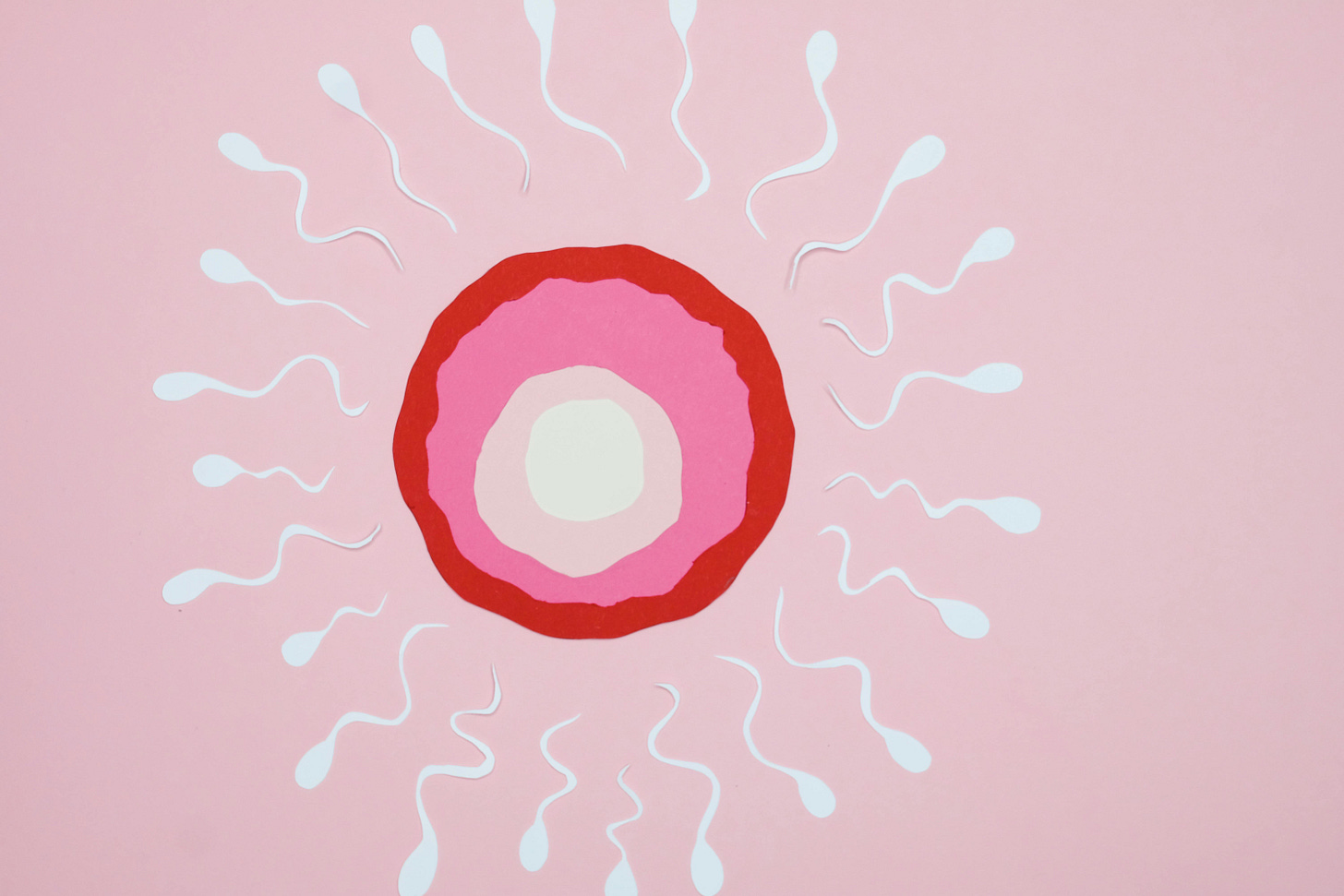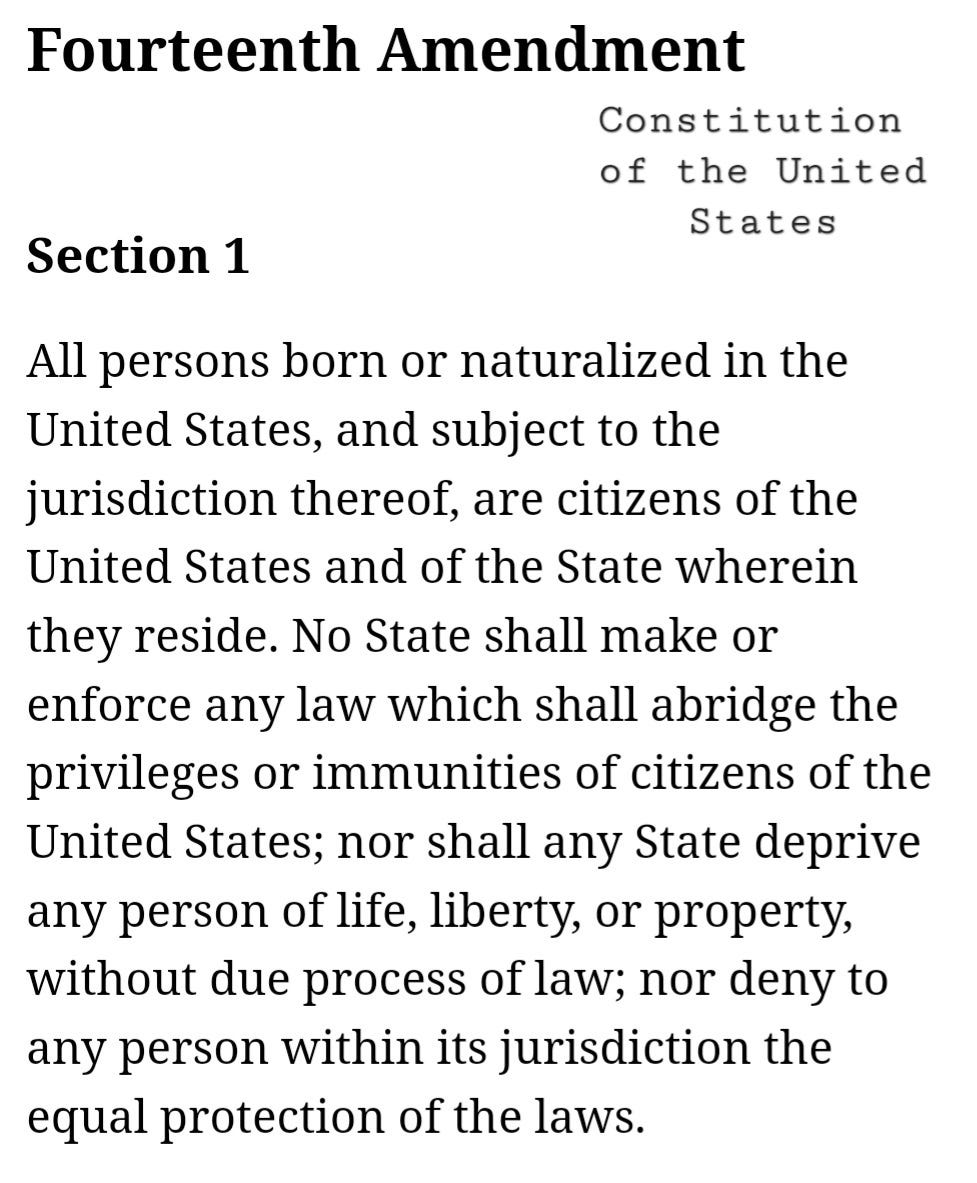What is 'Fetal Personhood'?
A brief introduction
This post is free thanks to the financial support of rePro-Truth’s subscribers. Please help rePro-Truth keep going and growing by subscribing today.
What is ‘Fetal Personhood’?
“Fetal Personhood” is the name of an ideology that posits that a fertilized female germ cell (egg), prior to the start of pregnancy and continuing thereafter, is an individual and wholly complete human being that should be recognized as a legal “person” under the law and endowed with the same legal rights as you and me.
In regards to an established pregnancy, Fetal Personhood relies on the physiological fiction that there is a clear, material delineation between the gravida (pregnant person) and the foster (embryo/fetus); it does not recognize as significant the fact that the foster is materially and functionally integrated into the gravida.1
Proponents of Fetal Personhood hold to the Containment View of pregnancy, wherein the gravida is envisioned as a mere container2— “a view which… proves untenable for empirical reasons.”3 “A closer look at embryology reveals that the foster, rather than being a neatly bounded entity with its own independent identity, is in fact strongly intertwined with the gravida.”4 “Given the intimate and multifaceted intertwinement between gravida and foster… the traditional container image” falls apart.5 Nevertheless, ideological adherents of Fetal Personhood steadfastly cling to this outdated view.
“According to the containment view, fosters are merely inside gravidae, the way… ‘a tub of yogurt is inside your refrigerator.’”6 “Birth, then, involves a mere change of environment, like opening the fridge or oven and taking out your desired breakfast.”7 This view relegates pregnant people to the periphery of their own pregnancies. As sociologist Barbara Katz Rothman once remarked, “[T]he fetus in utero has become a metaphor for ‘man’ in space, floating free, attached only by the umbilical cord to the spaceship. But where is the mother in that metaphor? She has become empty space.”8
The Fetal Personhood Movement, “at its core, is about adopting a ‘thin,’ unqualified, and biological definition of personhood that would attach full moral status and legal protection to” fertilized eggs, embryos, and fetuses, “and place them on equal footing with the born.”9 To the limited extent that pregnant people are even acknowledged, the Fetal Personhood ideology “treats pregnant people as adversaries of their own fetuses.”10
The immediate effect of legally establishing “personhood,” proponents argue, would be that “prosecutors would immediately be permitted to decide whether to conduct investigations involving the loss of life” of or harm and mistreatment to “these newly recognized persons.”11 “The significance of this position should not be lost. With no need for legislation to be enacted… proponents seem to be suggesting that no discussion need be had by elected officials regarding the nature and scope” of a fertilized egg's, embryo’s, or fetus's legal “personhood.”12
Acknowledging fertilized eggs, embryos, and fetuses as legal persons “is thought [by advocates for Fetal Personhood] to be an avenue toward establishing a framework that would” completely prohibit abortion “without direct reference to [the word] abortion.”13 This strategic trick of omission provides Fetal Personhood proponents with the veneer of plausible deniability while simultaneously furthering their goal of complete abortion abolition.
This belief and strategy is evident in the Republican Party’s 2024 platform. While the platform does use the word abortion when referring to the Party's opposition to late-term abortion - an undefined, non-medical, anti-abortion term that activists use with unbounded fluidity of meaning - the platform does not use the word abortion when referring to its goal of restricting all abortions— not only so-called late-term abortions. Instead, the platform invokes the Fetal Personhood theory of the Fourteenth Amendment of the U.S. Constitution. The platform states:
“We believe that the 14th Amendment to the Constitution of the United States guarantees that no person can be denied Life or Liberty without Due Process, and that the States are, therefore, free to pass Laws protecting those Rights. After 51 years, because of us, that power has been given to the States…” (capitalization errors in the original)
This appeal to the Fourteenth Amendment is a veiled declaration that the Republican Party believes that Fetal Personhood is already codified in the U.S. Constitution through the Fourteenth Amendment - quietly stating the Party's mission to completely prohibit abortion without ever using the word abortion. The platform treats Fetal Personhood as an already-established fact and, hence, encourages states to effectuate Fetal Personhood in practice.
Lest you harbor any doubts about this, consider the words of anti-abortion leaders. Here are just a few examples:
The chairman of the Faith and Freedom Coalition, Ralph Reed, stated that the Republican Party’s 2024 platform “makes clear the unborn child has a right to life that is protected by the Constitution under the due process clause of the 14th amendment.”14
The head of the anti-abortion political behemoth SBA Pro-Life America, Marjorie Dannenfelser, gushed, “It is important that the G.O.P. reaffirmed its commitment to protect unborn life today through the 14th Amendment. Under this amendment, it is Congress that enacts and enforces its provisions. The Republican Party remains strongly pro-life at the national level.”15
The head of Students for Life of America, Kristan Hawkins, “lauded the platform’s ‘support of 14th amendment protections for preborn children,’ and called it ‘an open door to passing strong pro-life federal legislation.’”16
[*Note: In the next post, we will be examining the Fetal Personhood ideology's theory of persons under the Fourteenth Amendment, and the ways this theory has evolved over time, leading us to our present moment.]
The Fetal Personhood ideology gives little to no consideration to “homeostasis and physiological autonomy; metabolic and functional integration; topological continuity; and immunological tolerance”;17 nor to the “temporal dynamics of mammalian pregnancy.”18 Thus, “the legal issue of fetal personhood represents a complex and contentious debate that intersects deeply with issues of reproductive rights, women's autonomy, and governmental power,” and the ramifications extend far beyond abortion, into other sectors of daily life and interpersonal relationships.”19
“[T]he expansion of governmental power” necessary to effectuate the Fetal Personhood ideology “would likely be substantial. Granting [fertilized eggs, embryos, and fetuses] legal personhood would necessitate a robust framework to enforce and protect these rights. This could lead to increased governmental intervention in women's healthcare, including stricter regulations on abortion and potentially even monitoring of pregnant women's behaviors. The state could impose legal obligations on women to ensure the well-being of the fetus, effectively subjecting them to continuous surveillance and control. This level of governmental intrusion raises serious privacy concerns and challenges the principle of bodily autonomy that underpins many democratic societies.”20
“The implications of fetal personhood extend beyond individual rights to broader societal and ethical considerations. It brings into question the balance between protecting potential life and preserving the rights of women.”21 But the Fetal Personhood ideology also contains inherent contradictions and absurdities. We will be exploring these topics in the days and weeks ahead.
[*Note: In the event that Donald Trump is elected on November 5th, anti-reproductive-rights groups have a plan in place for Trump to enact the Fetal Personhood ideology nationwide through executive powers, a plan which would not need the cooperation of Congress in order to be carried out.]
Condit, C. M. (1990). Appendix A: A “Right to Life?” In Decoding Abortion Rhetoric: Communicating Social Change (p. 208). essay, Board of Trustees of the University of Illinois.
Meincke, A. S. (2021, September 15). One or two? A process view of pregnancy - philosophical studies (p. 1496). SpringerLink. https://link.springer.com/article/10.1007/s11098-021-01716-y
Meincke, A. S. (2021, September 15). One or two? A process view of pregnancy - philosophical studies (p. 1497). SpringerLink. https://link.springer.com/article/10.1007/s11098-021-01716-y
Meincke, A. S. (2021, September 15). One or two? A process view of pregnancy - philosophical studies (p. 1498). SpringerLink. https://link.springer.com/article/10.1007/s11098-021-01716-y
Meincke, A. S. (2021, September 15). One or two? A process view of pregnancy - philosophical studies (p. 1499). SpringerLink. https://link.springer.com/article/10.1007/s11098-021-01716-y
Elselijn Kingma, Were You a Part of Your Mother?, Mind, Volume 128, Issue 511, July 2019, Pages 609–646, https://doi.org/10.1093/mind/fzy087
Elselijn Kingma, Were You a Part of Your Mother?, Mind, Volume 128, Issue 511, July 2019, Pages 609–646, https://doi.org/10.1093/mind/fzy087
Siegel, R. (2021, November 25). Reasoning from the body: An historical perspective on abortion regulation and questions of equal protection. Yale Law School Legal Scholarship Repository. (p. 347). https://openyls.law.yale.edu/handle/20.500.13051/273?show=full
Will JF. Beyond Abortion: Why the Personhood Movement Implicates Reproductive Choice. American Journal of Law & Medicine (p. 583). 2013;39(4):573-616. doi:10.1017/S0098858800012077
Sarah Corning, Recentering Pregnancy: A Response to Fetal Personhood, 35 Stan. L. & Pol'y Rev. 322 (2024).
Will JF. Beyond Abortion: Why the Personhood Movement Implicates Reproductive Choice. American Journal of Law & Medicine (p. 587). 2013;39(4):573-616. doi:10.1017/S0098858800012077
Will JF. Beyond Abortion: Why the Personhood Movement Implicates Reproductive Choice. American Journal of Law & Medicine (p. 587-588). 2013;39(4):573-616. doi:10.1017/S0098858800012077
Will JF. Beyond Abortion: Why the Personhood Movement Implicates Reproductive Choice. American Journal of Law & Medicine (p. 578). 2013;39(4):573-616. doi:10.1017/S0098858800012077
Rinkunas, S. (2024, July 9). Don’t be fooled by the gauzy coverage of the GOP’s “new” abortion platform. Slate Magazine. https://slate.com/news-and-politics/2024/07/republican-national-committee-2024-platform-gop-abortion-stance-has-not-softened.html
Rinkunas, S. (2024, July 9). Don’t be fooled by the gauzy coverage of the GOP’s “new” abortion platform. Slate Magazine. https://slate.com/news-and-politics/2024/07/republican-national-committee-2024-platform-gop-abortion-stance-has-not-softened.html
McCarter, J. (2024, July 9). Trump’s platform is a gift for abortion foes. he hopes nobody notices. Daily Kos. https://www.dailykos.com/stories/2024/7/9/2252453/-Trump-s-platform-is-a-gift-for-abortion-foes-He-hopes-nobody-notices
Elselijn Kingma, Were You a Part of Your Mother?, Mind, Volume 128, Issue 511, July 2019, Pages 609–646, https://doi.org/10.1093/mind/fzy087
Meincke, A. S. (2021, September 15). One or two? A process view of pregnancy - philosophical studies (p. 1497). SpringerLink. https://link.springer.com/article/10.1007/s11098-021-01716-y
Davies, D. M. (2024, June 24). The endgame of “fetal personhood.” TPR. https://www.tpr.org/podcast/the-source/2024-06-24/the-endgame-of-fetal-personhood
Davies, D. M. (2024, June 24). The endgame of “fetal personhood.” TPR. https://www.tpr.org/podcast/the-source/2024-06-24/the-endgame-of-fetal-personhood
Davies, D. M. (2024, June 24). The endgame of “fetal personhood.” TPR. https://www.tpr.org/podcast/the-source/2024-06-24/the-endgame-of-fetal-personhood



